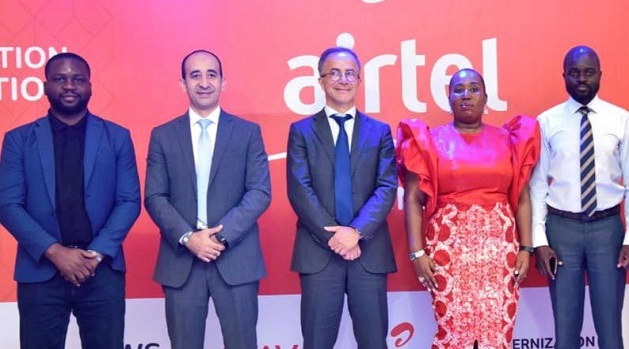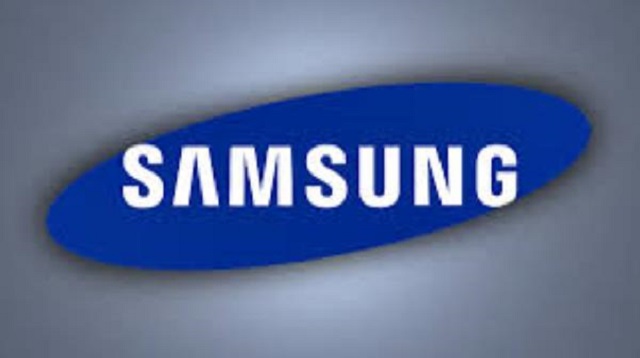Telecom
Airtel Nigeria Champions Public Sector Participation in Improved Modernization and Digitization

Airtel Nigeria, in collaboration with business partners, Amazon Web Services (AWS) and AVAYA, hosted an exclusive interactive breakfast session aimed at engaging, educating, and exploring the vast possibilities within the Telecoms and ICT sphere, yesterday, at the prestigious Fraser Suites in Abuja.

The event themed ‘Modernization and Digitization’ was a dynamic gathering, bringing together industry experts, thought leaders, and key stakeholders together in a session where participants had the opportunity to engage in insightful discussions, and thought-provoking presentations led by various teams of experts at Airtel, Avaya, and AWS, sharing knowledge on how businesses can collectively drive growth, innovation, and excellence within organisations.
Speaking at the event, Director of Airtel Business, Airtel Africa, Luc Serviant emphasized the company’s commitment to fostering collaboration and partnerships that drive progress and innovation.
He highlighted Airtel Nigeria’s dedication to endowing the public sector through cutting-edge technologies, enabling transformative change on a national scale.
“At Airtel, we are happy to discuss connectivity, innovation & technology, digital pillars, cloud security, network services, digital insight and portfolio solutions for effective business within the public sector.
“As a reliable partner in proffering innovative and technological solutions, we operate beyond providing connectivity to producing solutions and so many systems such as our core connectivity, data centre, cloud security and other applications from our partners have been put in place to constantly meet the evolving needs of not only the private sector but the public sector at large,” he said.
Airtel further discussed several business solutions that are beneficial to both private organizations and public sectors.
Some of the services and products include the Leased Line, a product that allows business owners to own their personalized network service within the Airtel network with utmost security that cannot be hacked; the Global MRLS tailored to enhance connectivity for organisations that operate across various branches around the globe, the Multi-tenant building connectivity for high rise buildings that allows occupants to share cost which is a very profitable and economical approach to enjoying Airtel business products.
Also speaking on the need for the government to revolutionize and deliver seamless experiences through technology, Senior Solutions Architect, AWS, Stanley Anetoh, said, “We are glad to collaborate with Airtel on this initiative, following the increasing rate at which citizens are now raising their expectations of government interactions with responsive and digitally connected services.
“It is safe to say that cloud technologies in particular are considered very important to facilitate most of the government’s key initiatives and we would be very glad to offer cloud support as such advancement is not restricted to the private sector alone.”
Representatives of the AVAYA team also discussed their various cloud services, powered by their partnership with Airtel’s data center connectivity.
Ogo Ofomata, Director, Airtel Business Nigeria, expressed satisfaction at the success of the interactive session. “As a business, Airtel Nigeria is delighted to open these channels of engagement with key players in our industry and today’s event has proven that we are on the right track,” she said.
Airtel is committed to providing unparalleled solutions and services to its customers, and this event is just one of the many initiatives the organization has undertaken to reinforce its stand at the forefront of the Telecoms and ICT sector.
Telecom
Mandatory Biometric Verification for Starlink Users in Nigeria Begins

Users of satellite internet service provider Starlink in Nigeria are being required to complete a biometric Know Your Customer (KYC) process as a precondition to continue enjoying their services, according to .biometricupdate.

According to local reports, more than 66,000 Starlink subscribers in the country had a December 31 ultimatum from the Nigerian Communications Commission (NCC) to complete the biometric verification or have their connection discontinued.
The process essentially entails linking a Starlkink account with the subscriber’s national digital ID.
The NCC, which is Nigeria’s telecoms industry regulator, is said to have first issued the directive in August last year, setting a three-month deadline which was to elapse on November 19, TechCabal reports.
The body however later extended it to December 31 after consultations with industry stakeholders. The internet account-NIN linkage, the NCC said, is to enhance identity verification and strengthen security within the country’s telecoms space.
Just a few days to the December 31 deadline, Starlink’s Nigeria office sent an email to its subscribers reminding them of the KYC requirement, and warned that all those who fail to comply would be disconnected.
And that once disconnected, reconnection would depend on network capacity in the concerned area.
The service provider said in its email that the process takes less than two minutes and users can complete it by logging in to their account via an app.
One user, quoted by TechCabal, said one needs to upload their selfie biometrics, provide their national identification number (NIN) and then give their consent for the account to be linked to their ID information.
Starlink’s internet service is present in about 155 countries with nine million users, as of 2025. Its growth in Nigeria is said to be rapid, making it the second largest internet service provider in the country, according to The Traffic.
Biometric identification for Starlink subscribers could become a continent-wide trend given that some countries have expressed reservations in opening up their internet space to the company over security concerns.
There’ve been fears that jihadists in countries like Mali and Nigeria may have exploited Starlink terminals to coordinate terror operations, and cybersecurity experts have also warned of risks related to weak regulation, digital sovereignty and data breaches.
The requirement for Starlink internet users to have their accounts linked with the NIN is similar to the SIM-NIN linkage policy which the Nigerian government battled to implement for many years, with many deadline extensions.
In October last year, the NCC, which is was at the forefront of the policy implementation, announced that all active SIM cards across all network providers had complied with the directive which was issued in 2020.
The idea, the federal government argued, was to strengthen security and curb criminality such as kidnappings which are aided and abetted by improperly identified mobile phone numbers.
Telecom
NITDA DG Charts Bold Path for Innovation-Led Digital Boom in North

Mr. Kashifu Inuwa, Director General of the National Information Technology Development Agency (NITDA), has urged Northern Nigeria to pivot urgently from traditional commerce to an innovation-driven digital economy for sustainable growth.

NITDA
Inuwa issued the call at the Future Map Foundation Roundtable 1.0 (North-West Edition) in Kano, attributing the region’s sluggish digital adoption not to talent deficits but to the lack of deliberate, coordinated strategies.
He stressed deeper collaboration across academia, private sector players, entrepreneurs, and government, positioning the private sector as the primary innovation engine while government supplies robust policies and an enabling ecosystem.
Inuwa advocated for people-focused, locally tailored innovations that tackle regional challenges head-on, enabling global competitiveness by transitioning from mere technology users to creators of homegrown solutions.
The roundtable convened policymakers, tech founders, and ecosystem stakeholders to forge a comprehensive roadmap for North-West digital transformation, yielding firm commitments to bolster regional innovation policies and public-private synergies.
Inuwa’s push dovetails seamlessly with the Federal Government’s Renewed Hope Agenda, which sets an ambitious target of 95 per cent nationwide digital literacy by 2030, fostering inclusive economic empowerment.
Participants hailed the forum as a pivotal step toward unlocking Northern Nigeria’s tech potential, with NITDA poised to lead implementation through strategic interventions and partnerships.
Telecom
Samsung Plans to Double AI Mobile Devices to 800 million Units this Year

Samsung Electronics plans to double this year the number of its mobile devices with “Galaxy AI” features largely powered by Google’s Gemini, its co-CEO said, which would give the U.S. firm an edge over rivals as the global race in artificial intelligence heats up.

The South Korean company, which had rolled out Gemini-backed AI features to about 400 million mobile products, including smartphones and tablets, by last year, plans to boost that figure to 800 million in 2026.
“We will apply AI to all products, all functions, and all services as quickly as possible,” T M Roh told Reuters in his first interview since becoming Samsung Electronics co-CEO in November.
The plan by the world’s largest backer of Google’s Android mobile platform is set to give a major boost to its developer Google, which is locked in a race with OpenAI and others to attract more consumer users to their AI model.
Samsung seeks to reclaim its lost crown from Apple in the smartphone market and fend off competition from Chinese rivals not only in mobile telephones, but televisions and home appliances, all overseen by Roh.
It will offer integrated AI services across consumer products to widen its lead over Apple in such features, though the latter was set to be the top smartphone maker last year, according to market researcher Counterpoint.
AI Race
Alphabet’s Google launched the latest version of Gemini in November, highlighting Gemini 3’s lead on several popular industry measures of AI model performance.
In response to Gemini 3, OpenAI CEO Sam Altman reportedly issued an internal “code red,” pausing non-core projects and redirecting teams to accelerate development. The ChatGPT maker launched its GPT-5.2 AI model a few weeks later.
Roh expects the adoption of AI to accelerate, as Samsung’s surveys on awareness of its Galaxy AI brand jumped to a level of 80% from about 30% in just one year.
“Even though the AI technology might seem a bit doubtful right now, within six months to a year, these technologies will become more widespread,” he said.

 News2 days ago
News2 days agoCourt Sends Faleti, Ex-Lagos Director to Jail for Stealing ₦48.9m from Access Bank

 E-Financial2 days ago
E-Financial2 days agoRemita Powers over ₦100 Trillion in Payments as Nigeria’s Digital Economy Expands

 News3 days ago
News3 days ago974 Nigerians Face Imminent Deportation from Canada Amid Enforcement Surge

 General News3 days ago
General News3 days agoHouse of Reps Releases Certified Copies of Tax Reform Acts amid Gazette Discrepancy Claims

 E-Financial2 days ago
E-Financial2 days agoWhy 2026 Must Be the Year Nigeria’s Economy Works for All

 E-Financial2 days ago
E-Financial2 days agoFlutterwave Acquires Nigeria’s Mono in $25m-$40m All-Stock Deal

 E-Financial2 days ago
E-Financial2 days ago2026: SEC to Review Rules to Incentivise SME Listings

 General News2 days ago
General News2 days agoNigeria Targets Satellite-to-Mobile Services in Draft Spectrum Roadmap

























